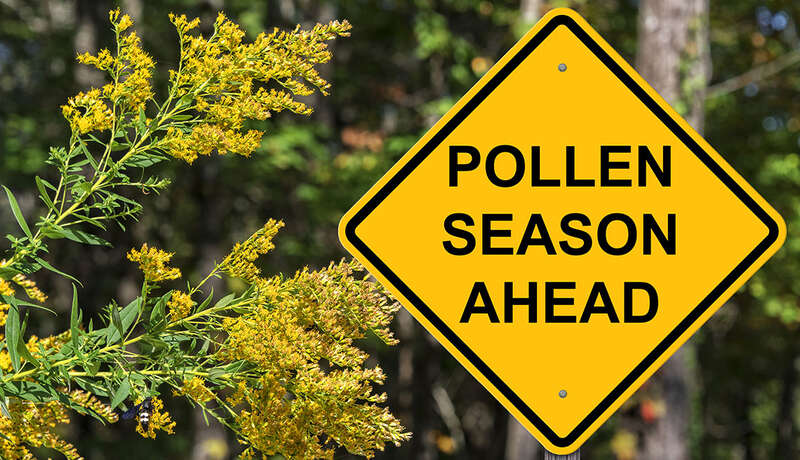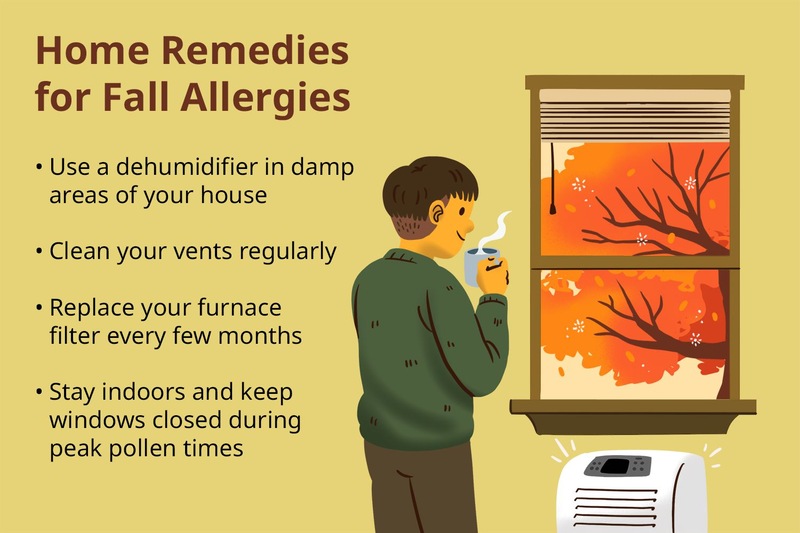Navigating Allergies Throughout the Year
Dec 16, 2023 By Nancy Miller
A strategic approach that adapts to changing seasons and environmental factors is necessary for living with allergies. This month-by-month guide explores effective strategies, offering tips to manage both seasonal allergies and year-round allergens. The comprehensive nature of this guide, from understanding the triggers to implementing practical solutions, aims to empower you with knowledge essential for a more comfortable life despite living with allergies.
January - Setting the Foundation for Allergy Management
Winter's arrival intensifies the prominence of indoor allergens as triggers for allergies. Warm and insulated homes become thriving grounds for dust mites, thereby instigating respiratory issues in numerous individuals.
Moreover, damp-cold conditions promote the flourishing of indoor molds. Focus on regular cleaning, dusting, and maintaining optimal humidity levels to minimize exposure. Invest in allergen-proof bedding. Consider using air purifiers for a cleaner indoor environment.
Set the foundation for a more comfortable winter season by addressing these indoor allergens come January.
February - Preparing for Early Spring Allergies
As winter transitions into early spring, tree pollen emerges as a significant allergen. As trees bloom and flourish, they release pollen. This process can trigger allergic reactions in those individuals who are susceptible to them. Therefore, you must stay proactive against these potential allergies by monitoring your local pollen forecasts.
Incorporate the use of high-efficiency particulate air (HEPA) filters into your home. This will mitigate airborne pollen. Strategically plan outdoor activities to limit exposure during peak pollen times. It’s a proactive approach that aids preparation for spring allergies' onset, particularly in February.
March - Navigating the Peak of Spring Allergies

Spring's full bloom brings a peak in pollen levels, which triggers an escalation of allergy symptoms. Challenging outdoor activities become manageable with strategic adjustments. Opt for outdoor engagements during the lower pollen count periods, usually late afternoon or post-rainfall events.
Embrace the beauty of spring this March, implementing practical solutions to navigate the peak of your seasonal allergies. Over-the-counter allergy medications, particularly antihistamines, can offer relief.
April - Tailoring Allergy Management to Your Needs
To create an effective management plan, one must understand the crucial variability of allergies among individuals. By maintaining a symptom diary and observing environmental factors, you can identify personal triggers.
Engaging in allergy testing such as skin tests or blood analyses provides valuable insights into the specific allergens that affect you. April is the perfect time for initiating an individualized approach to allergy management.
Collaborate with healthcare professionals. to ensure a strategy tailored specifically for you, thus guaranteeing more targeted and effective relief from allergies.
May: Preparing for Summer Allergens
Upon the arrival of summer, grass pollen and mold spores pervade as prevalent outdoor allergens. To minimize exposure, stay indoors during peak pollen times, keep windows closed, and utilize air purifiers.
For additional protection, implement strategies for avoiding outdoor allergens like wearing sunglasses and hats. To create an allergy-friendly living space, one must engage in regular cleaning to mitigate the growth of mold, specifically addressing summer allergens as early as May.
This proactive approach allows for a more enjoyable experience during warmer months, significantly reducing disruptions related to allergies.
June: Allergy-Proofing Your Summer Activities
Engage in summer activities that often expose you to outdoor allergens. However, strategic planning can enable you to allergy-proof your experiences. Opt for destinations offering lower levels of allergens: beaches or mountains.
To guarantee relief on the go, pack essential items such as allergy medications, sunscreen, and insect repellent. Before engaging in outdoor activities, consult the pollen forecasts and strategize your plans accordingly.
Through this proactive approach in June, not only can you relish an uninterrupted summer experience but also manage your allergies efficiently.
July: Beating the Heat Without Aggravating Allergies
As temperatures rise, so too does the concentration of potential allergens. Consequently, during the hot months when individuals tend to sequester indoors with their windows shut; indoor air quality assumes paramount importance.
Thus, you must guarantee adequate ventilation--and consider investing in air purifiers. It’s an effective measure for mitigating indoor allergy triggers. To maintain coolness without exacerbating allergy symptoms, opt for lightweight and breathable clothing.
Address these considerations in July. Thereby, you will not only conquer the heat but also exert control over your allergies.
August: Back-to-School Allergy Preparedness
In August, you must create an environment that is friendly to allergies for the returning students. It becomes crucial to communicate your child's allergies with their teachers, making sure they understand any specific needs.
To prevent exposure to potential allergens, pack lunches and snacks that are safe for allergies. In August, the implementation of these back-to-school allergy preparedness measures ensures a smooth transition for families with school-aged children. It minimizes challenges related to allergies.
September: Transitioning into Fall Allergies
During the transition from summer to fall, ragweed pollen and mold emerge as prevalent allergens. Maintaining a focus on managing outdoor and indoor allergens by employing tactics such as keeping windows closed, and using air purifiers can also prove beneficial.
Furthermore, regular HVAC maintenance serves to halt the circulation of indoor allergens. Addressing these fall allergens in September is a strategic approach to mitigating allergy-related disruptions. It facilitates a smoother transition into the new season.
October: Fall Allergy-Proofing Your Home
To prepare your home for the fall season, take steps to reduce indoor allergens. Regularly engage in thorough cleaning and vacuuming, these activities aid in eliminating dust and mold.

Additionally, prioritize proper ventilation as this is particularly crucial within areas that are susceptible to dampness. To optimize indoor air quality, schedule your HVAC maintenance. By taking this proactive step in October, you can guarantee a comfortable living space that is friendly towards allergies during the fall allergy period.
November: Thanksgiving Allergy-Friendly Celebrations
Allergy sufferers, particularly during Thanksgiving, can face challenges with holiday gatherings. As such, consider common food allergens when planning your menus. Communicate these dietary needs to hosts so that an allergy-friendly environment may be created. It’s a crucial step in ensuring the comfort and safety of all guests, yourself included.
In November, these measures guarantee your full enjoyment of Thanksgiving celebrations. You need not concern yourself with allergy triggers.
December: Closing the Year with Allergy Resilience
Reflect on the progress you've made in managing indoor allergens as the year concludes. Maintain a clean living space to ensure an environment that supports allergy resilience.
Arm yourself with this year's knowledge and set intentions for a future December, where health is under your control despite allergies. Embrace the winter season confidently as you've proactively managed indoor allergens, a task executed effectively.
This comprehensive, month-by-month guide is a roadmap designed to navigate the intricate landscape of allergies throughout the year. By identifying and addressing specific allergens prevalent in each month, you can proactively manage your allergies. Thereby enhancing not only overall health but also well-being.
Conclusion
As you embark on this journey, keep in mind, that personalizing your approach is paramount. From person to person, allergies vary significantly. There is no universal solution. Therefore, invest the necessary time and effort. Identify your triggers meticulously, explore testing options comprehensively, and consult with healthcare professionals intensely to devise a customized allergy management strategy.
Implement the tips provided in each section. By doing so, enjoy every month more comfortably and experience fewer disruptions caused by allergies.

What is Severe Autism

How to Stop Overthinking: 6 Easy Ways

A Comprehensive Guide to Understanding Childhood Depression

Gym Makeup: Discover the Impact on Your Skin and What to Avoid

Health Benefits and Techniques of Fermenting Brown Rice

Nutrition Facts And Proven Health Benefits of Garlic

Know The Stinging Nettle Benefits, Uses, and Side Effects


